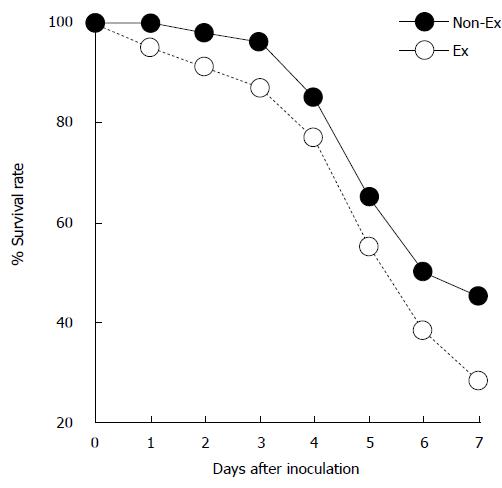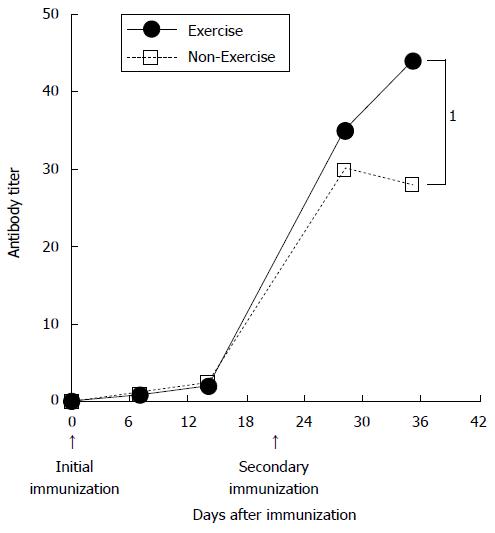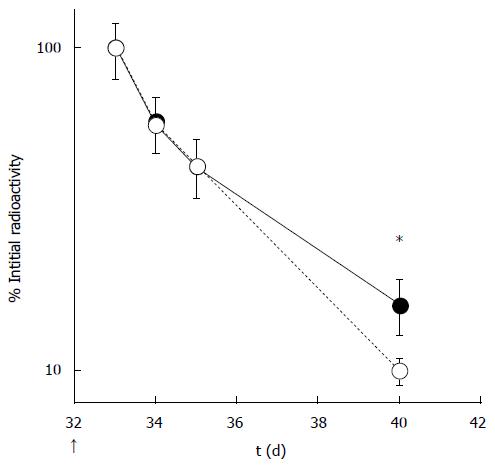Copyright
©The Author(s) 2015.
World J Immunol. Nov 27, 2015; 5(3): 160-166
Published online Nov 27, 2015. doi: 10.5411/wji.v5.i3.160
Published online Nov 27, 2015. doi: 10.5411/wji.v5.i3.160
Figure 1 Exercise enhances survival rate in mice infected with Salmonella typhimurium.
Mice voluntarily trained on exercise wheels for 16-18 d (EX) and were infected with Salmonella typhimurium. These EX mice exhibited a small but significant increase in survival rate (34/77) compared with sedentary control (Non-EX) mice (23/79) after 7 d (Modified from Cannon et al[3]). EX: Exercise; Non-EX: Non-exercise.
Figure 2 Effects of physical training on the murine immunological response.
Serum IgG levels in active (exercise) and control (non-exercise) mice. Arrows indicate the time of immunization. 1Significant difference between Exercise and Non-Exercise groups (Modified from Douglass[1]).
Figure 3 Clearance of radiolabeled IgGs from active (black circles) and sedentary (white circles) mice (Modified from Suzuki et al[12]).
*Significant difference between active and sedentary mice.
- Citation: Suzuki K. Effects of exercise on antibody production. World J Immunol 2015; 5(3): 160-166
- URL: https://www.wjgnet.com/2219-2824/full/v5/i3/160.htm
- DOI: https://dx.doi.org/10.5411/wji.v5.i3.160











